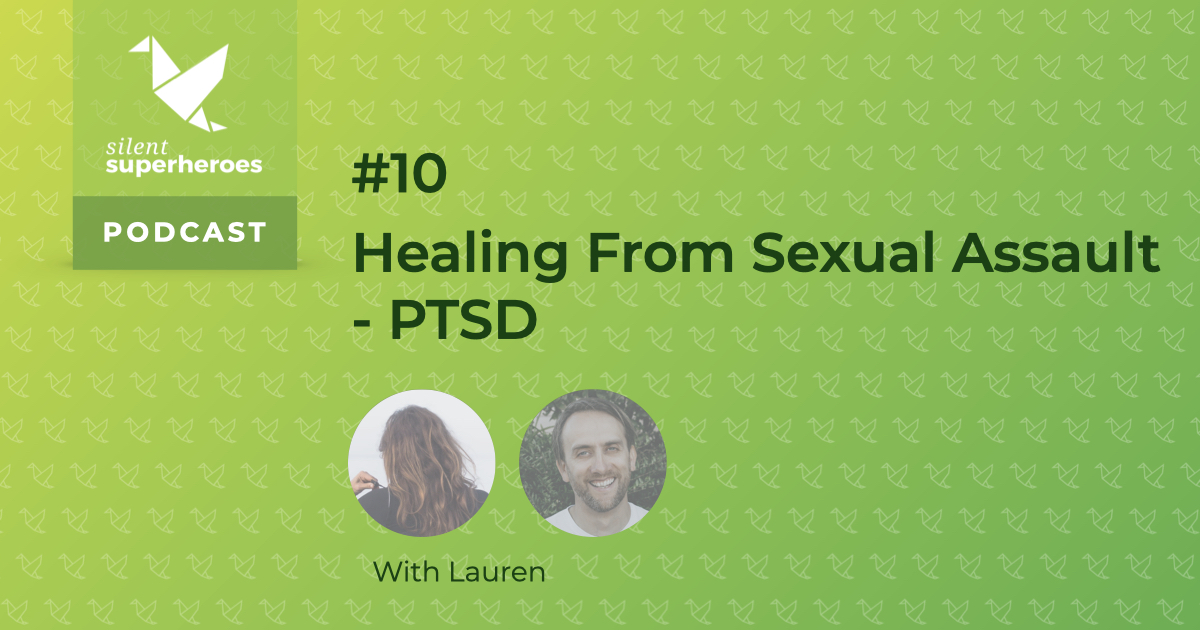According to the National Sexual Violence Resource Center, one in five women will be a victim of rape at some point in their lives. If that number shocks you, it’s because many victims of sexual assault and rape cope with their trauma in silence. In 2017, the silence broke as women started speaking out on social media through the #metoo movement. Now the healing from PTSD can begin.
Listen To Episode 10
Podcast: Play in new window | Download (Duration: 56:31 — 29.2MB)
Show Notes
In this episode of Silent Superheroes, we meet Lauren, a software engineer from Australia who was a victim of rape as a teenager, leaving her with PTSD. Unable to tell anyone for more than a year, Lauren dropped out of high-school and struggled with panic attacks. Eventually, her journey of healing from PTSD began by writing a letter about her experience to her mum. Lauren has come to terms with her trauma through psychologists offices, medication, and with the support of family, friends and now colleagues. While coming to terms with her trauma, she studied to be a software engineer, and is now forging a successful career in technology.
Links
- Finding a psychiatrist in Australia and New Zealand (resource)
- National Sexual Violence Research Center (resource )
About PTSD
Post-traumatic stress disorder (PTSD) is a mental health condition that’s triggered by a terrifying event — either experiencing it or witnessing it. Symptoms may include flashbacks, nightmares and severe anxiety, as well as uncontrollable thoughts about the event.
People who go through traumatic events may have temporary difficulty adjusting and coping. Fortunately, with time and good self-care, they usually get better. If the symptoms get worse, last for months or even years, and interfere with your day-to-day functioning, you may have PTSD. In that case, it is important to get effective treatment after PTSD symptoms develop. Getting treatment can be critical to reduce symptoms and improve function.
Getting Support
Remember, the people you hear on Silent Superheroes are sharing their opinions about mental health and mental illness. They are not giving advice. For that reason, please consult with your care provider before making a change to your treatment approach.
It’s important to take your mental health seriously. Consequently, if you need to speak to someone you can call 1-800-273-8255, or text crisistextline.org on 741741. Both provide 24×7 confidential counseling to people in the United States. Worldwide visit http://iasp.info/resources/Crisis_Centres/
Because you listened to the podcast, you can help others find it by leaving us a review on iTunes. Or if you don’t use iTunes, leave a review on your favorite podcasting service.


